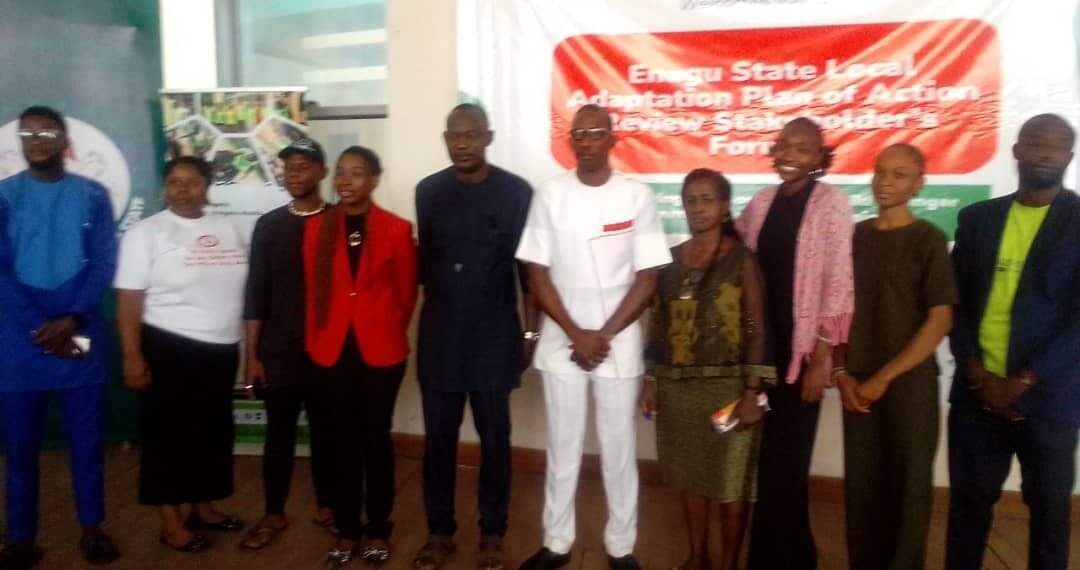In a significant step toward addressing the pressing impacts of climate change, stakeholders and residents of Enugu State gathered on Wednesday to discuss strategies for developing local adaptation plans. The event highlighted the detrimental effects of climate change on agriculture, health, livelihoods, and lifestyles, which are increasingly evident across the state.
The workshop, themed “Climate Action for a Stronger Nigeria,” was organized by EcoCyclers, Society for the Improvement of Rural People (SIRP), and Plogging Nigeria, with support from the Network of Youth for Sustainable Development Goals (NGYouthSDGs) and the Embassy of Germany in Abuja. The goal was to foster collaboration and chart actionable plans to strengthen community resilience against climate change.
Mrs. Ogechi Nwoye-Bernard, founder of EcoCyclers, emphasized the importance of inclusive participation in climate adaptation planning. She noted that the workshop aimed to integrate local knowledge and experiences into the development of strategies that align with national climate policies such as the National Adaptation Plan (NAP) and Nationally Determined Contributions (NDCs). Nwoye-Bernard added that the insights from the event would be compiled into a working document to guide future actions.
Mr. Somtochukwu Ugwu, Executive Director of SIRP, highlighted his organization’s efforts in rural communities to raise awareness about the long-term risks of unchecked climate change. He stressed the need for grassroots ownership of climate adaptation initiatives to ensure practical implementation and sustainability.
Similarly, Mr. Ayodeji Omilabu, Administrator of Plogging Nigeria, revealed that the organization had successfully established environmental associations in over 23 tertiary institutions, particularly in the South-East. He underscored the importance of youth involvement in climate change advocacy, describing it as essential for building a resilient future.
Read also: Climate activists protest against gas conference in Berlin
Representing the state government, Commissioner for Environment and Climate Change, Prof. Sam Ugwu, outlined ongoing efforts to mitigate climate impacts. These include transitioning to e-governance to reduce paper waste, adopting solar power for energy efficiency, and cracking down on illegal mining to curb environmental degradation. Ugwu assured stakeholders that the government would support the outcomes of the workshop, which he described as a crucial step toward creating a climate-resilient Enugu State.
The workshop featured breakout sessions where participants shared experiences, discussed challenges, and explored practical solutions for mitigating climate change impacts. Attendees included community members, traditional leaders, farmers, women’s groups, religious leaders, teachers, and representatives from both public and private sectors.
The event concluded with a commitment to draft a comprehensive local adaptation plan for Enugu State, incorporating input from diverse stakeholders. This collaborative approach aims to empower communities and ensure a sustainable and inclusive response to the growing challenges posed by climate change.






